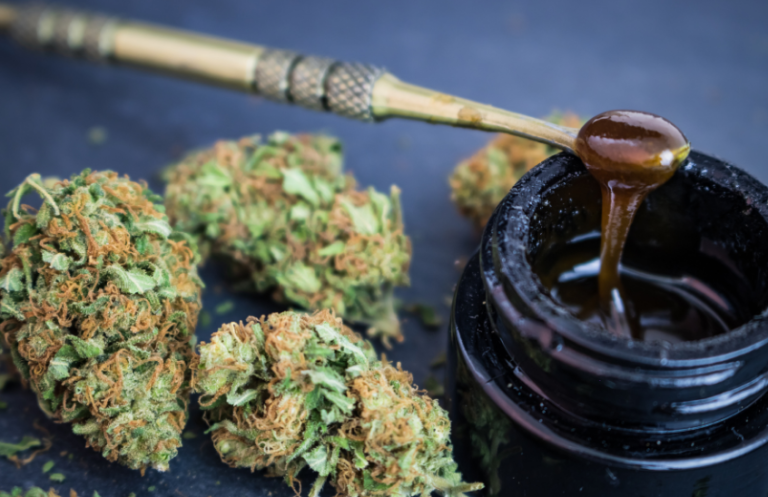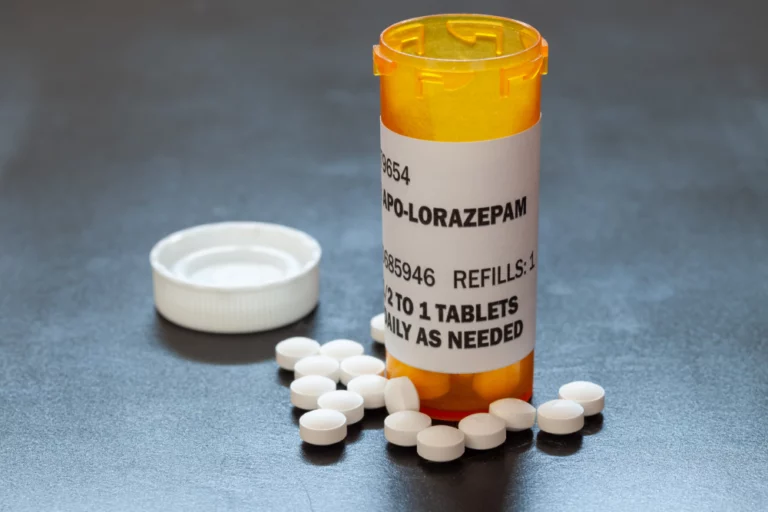Is Valium addictive? Yes, but it is unlikely for someone to develop a Valium addiction immediately. In the beginning, you may observe that your loved one has begun consuming more of the drug to decrease their anxiousness or to get to sleep faster.
Eventually, they may start to ask for supplementary doses of the sedative with greater frequency or even request drugs from multiple physicians. This person may become preoccupied with getting and consuming the substance.
So is Valium addictive? Yes. Valium addiction is very dangerous if left untreated. Therefore, it is highly important to know what Valium is, what the risk factors of developing this addiction are, the signs of Valium addiction, and treatment if using has become detrimental and dangerous.
Is Valium Addictive? A Deeper Look Into This Benzodiazepine
Valium is generally given as a medication to treat feelings of anxiousness, muscle contractions, and seizures. It can also be utilized to reduce difficult signs of alcohol withdrawal. Valium works by decreasing intense neural action to minimize extreme tension and nervousness. It is ingested orally in tablet form and typically taken 1-4 times per day when recommended by a physician.

Valium is a long-lasting Benzodiazepine, meaning it lasts for a longer period of time compared to shorter-acting Benzos such as Halcion.
This makes it so that you need to take fewer doses a day than with shorter-acting Benzos. Valium is intended to be taken regularly in order to be effective. But when someone begins to take Valium more than prescribed, or without a prescription, they increase their chances of developing an addiction.
Is Valium Addictive? Understanding the Levels of Addiction
To better understand the answer to is valium addictive it’s important to know the methods used to identify addiction. Numerous methods can be used to evaluate how addictive a particular drug is and the risk it imposes on users. An effective way to gauge a drug’s addictive qualities is to look at how it functions in the brain and if it has the propensity to cause addiction.
Additionally, its legal and illicit usage should be taken into account. Drugs that are regularly misused are more likely to lead to a substance use disorder.
Valium, being a benzodiazepine, can lead to chemical dependence and addiction due to the way it works. Drugs that often result in addiction are known to affect the brain’s “pleasure chemicals” such as dopamine, serotonin, endorphins, and oxytocin.
Opioids act like endorphins, while stimulants increase dopamine levels. Primarily, benzodiazepines act on GABA, yet they are also capable of indirectly altering dopamine. A study conducted in 2010 revealed that benzodiazepines interact with certain GABA receptors, which can further cause an increase in the activation of dopamine neurons.
Dopamine is associated with positive emotions, enjoyment, and being rewarded. Certain drugs that boost dopamine can lead to a feeling of elation.
Depressants often create a sense of euphoria and contentment. Valium can lead to physical reliance which is when your body becomes accustomed to the drug and is unable to function without it.
Dependence and addiction are not the same but often go hand in hand. Becoming dependent can bring about withdrawal symptoms and an intense craving for the drug, both of which can exacerbate an addiction.
When Valium is taken inappropriately or for recreational purposes, it is more likely to lead to dependency. It is classified as a Schedule IV drug, which means that it has a moderate risk of abuse, yet it is still accepted for medical purposes.

Risk Factors for Developing a Valium Addiction
Regardless of who you are or what you believe in, addiction is something that can affect anyone. It can be difficult to comprehend why some individuals are more vulnerable to it than others. This can be a contributing factor in answering, “is Valium addictive?”
Your genetics, surroundings, medical past, and age all play a part in increasing the odds of you becoming addicted to alcohol or other drugs, regardless of your upbringing or ethical beliefs. The following are common risk factors for developing a Valium addiction:
Genetics
Heredity is a major contributing factor to a person’s potential to become addicted. According to the National Institute on Drug Abuse, genetics are responsible for around half of the risk of becoming addicted to alcohol, drugs, or nicotine.
This explains why it is common for those with relatives and family members who have experienced addiction to find themselves dealing with the same struggles. People with an addictive personality are particularly susceptible to addiction; they may avoid alcohol, but become dependent on substances such as drugs or gambling.
Environment
A person’s likelihood of becoming addicted to something can be heightened by environmental conditions. If parents are not taking active roles in their children or adolescents’ lives, they may be more likely to take risks and try out drugs and alcohol.
Additionally, those who undergo neglect or mistreatment from their guardians may turn to alcohol or drugs as an outlet for their emotions. In addition, peer pressure, especially amongst young people, is a contributing factor to addiction, even if it is not necessarily aggressive or obvious.
Age
It has been suggested that age represents one of the contributing elements to addiction. A study executed by the National Institute on Alcohol Abuse and Alcoholism uncovered that adolescents in the 18-24 age range were more disposed to both drug and alcohol addiction.
If someone starts using drugs or alcohol before they reach maturity, it can alter their brain development, increasing the likelihood of them developing mental health issues as they age.
Mental Health
If a person has a mental health disorder, it can make them more vulnerable to developing an addiction. On the other hand, addiction can worsen existing mental health issues, resulting in a spiral of increasingly worse outcomes. While someone may find that ingesting substances temporarily alleviate some of their symptoms, in the grand scheme of things, addiction will only make their situation worse.
Is Valium Addictive? Understand the Side Effects
The development of Valium dependency frequently begins in what appears to be an innocuous way: folks will take it once or twice to make up for lost sleep or to manage a difficult day. A lot of Valium users conceal their drug use which can make it difficult for family and friends to detect that there is an issue.

As someone becomes more reliant on Valium, they are likely to raise their doses. This makes it tougher for them to cover up their use, and they are prone to display obvious indications of Valium misuse. The physical and behavioral consequences of Valium intoxication are analogous to that of alcohol intoxication. Some signs that could suggest Valium abuse may include:
- Slurred speech
- Dilated pupils
- Impaired coordination
- Irritability
- Changes in appetite
- Lethargy
- Weakness
- Confusion
- Shallow breathing
People who take Valium on a regular basis for an extended period may end up developing psychological issues that were not present before. The drug is used to manage anxiety, so the brain may become dependent on it to regulate tension.
Without Valium, the addicted brain is not balanced, resulting in the emergence of previously unseen symptoms of anxiety and depression. Additionally, the long-term impact of heavy Valium abuse might be extremely damaging. Some evidence suggests that long-term use may cause brain damage, which can impact memory and mental capability.
How to Help Your Loved One Struggling with Valium Addiction
Is Valium addictive? Yes, and it goes beyond just dependence. The physical and psychological health issues associated with Valium use suggest a major issue. It may be necessary to intervene professionally in order to make your spouse aware of the importance of seeking help. Interventions can be a successful way to persuade someone close to you to get help for their Valium addiction.
This involves family, friends, and colleagues joining forces to confront the individual. During the intervention, they will attempt to convince the person to receive treatment from professional intervention specialists or rehabilitation programs.
It is essential to provide assistance without making any kind of assessment or assigning guilt. Acquiring knowledge about Valium addiction can help create a greater comprehension of what the person you care about is experiencing.
Ceasing to take Valium without medical supervision can be uncomfortable as well as unsafe. Abruptly stopping the medication can lead to seizures, rebound anxiety, and other serious withdrawal symptoms. You may be able to persuade your spouse to receive assistance by explaining the advantages of medically assisted detox and the life-changing advantages of rehabilitation.

Valium Detox in Asheville
Valium addiction can have detrimental consequences to one’s physical health, psychological state, and interpersonal connections, as well as diminishing the quality of life.
If you or someone you care about is experiencing an addiction to ketamine, asking for aid in no way indicates weakness. Working in cooperation with family, friends, and addiction experts can assist in overcoming the addiction and lead to a substance-free lifestyle.
If you or someone close to you is finding it difficult to stop taking Valium, you should get in touch with the specialists at Asheville Detox Center to explore the available treatment options.
If you or your loved one is having a hard time giving up the drug, it is essential to go through a professionally supervised detox process to properly handle any withdrawal symptoms. You do not have to go through the Valium addiction on your own. Contact us or call our professionals at Asheville Detox today. We are here for you.








